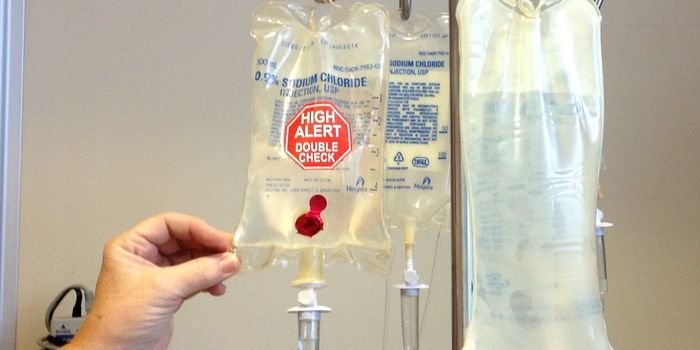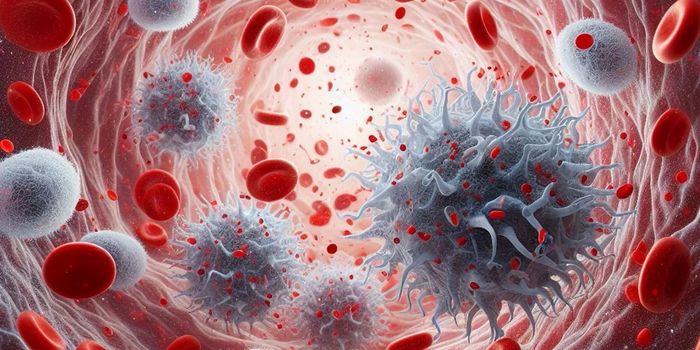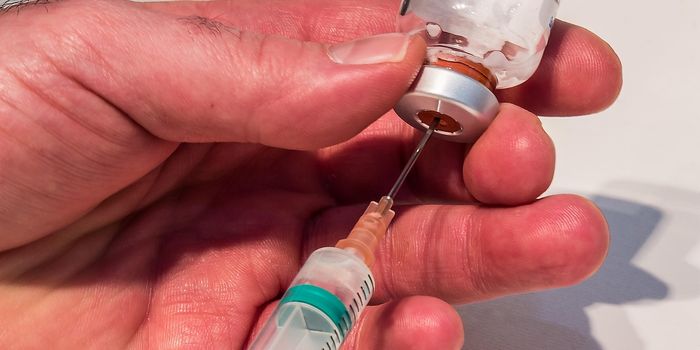A new study found that people with lower vitamin D levels prior to treatment for follicular lymphoma succumb to the disease or face relapse earlier than patients with sufficient vitamin D levels in their blood.

People with lower vitamin D levels before treatment for follicular lymphoma succumb or face relapse earlier.
Image Credit: Shutterstock
The Wilmot Cancer Institute investigation is believed to be the first to report that lack of vitamin D is a potentially modifiable risk factor for this type of cancer. The study was published by the Journal of Clinical Oncology.
Vitamin D's connection to cancer is an active research topic. Prior studies have shown a survival benefit among patients with higher vitamin D levels for diffuse large B-cell lymphoma and chronic lymphocytic leukemia. In addition, earlier peer-reviewed research at Wilmot showed that low vitamin D levels among women with breast cancer correlated with more aggressive tumors and poorer prognosis; and that vitamin D deficiency among African Americans might help to explain higher death rates from colorectal cancer. Currently, Wilmot investigators are evaluating whether weekly, high doses of vitamin D (50,000 IU) improves the side effects related to androgen deprivation therapy for prostate cancer in patients ages 65 and older.
Jonathan W. Friedberg, M.D., director of the Wilmot Cancer Institute, and Jennifer Kelly, M.P.H., Ph.D., an epidemiologist at the University of Rochester School of Medicine and Dentistry, led the collaborative follicular lymphoma study between SWOG, a component of the NCI-sponsored National Clinical Trials Network, and the Lymphoma Study Association (LYSA), based in France.
Researchers observed a total of 423 follicular lymphoma patients in two independent cohorts, who were followed for a minimum of 5 ½ years each. They measured the patients' baseline vitamin D blood levels before cancer treatment began, and then tracked and analyzed cancer survival data for each group.
Future research might support prescribing vitamin D supplements for patients at the earliest point of follicular lymphoma treatment, when patients are typically monitored closely but have not started active therapy, investigators concluded. They also suggested that vitamin D may represent a proxy or biomarker for better health going into cancer treatment.
Follicular lymphoma is generally incurable although it's slow-growing and many people live for years with the disease. Risk increases with age, and an estimated 19,000 people annually are diagnosed with FL. Treatments have improved recently, although a subset of patients have an aggressive form for which therapy is not as effective. Better ways to predict the course of the disease are needed, therefore-and this is where vitamin D levels might provide a previously unidentified but modifiable factor associated with prognosis, Friedberg said.
"Our data, replicated internationally, supports other published observations linking Vitamin D deficiency with inferior cancer outcomes," he said. "However, the mechanisms of this link are likely complex and require further study."
Large differences in vitamin D levels among the patients in the two cohorts prevented scientists from being able to recommend an optimal level of vitamin D for follicular lymphoma patients. (In the U.S., vitamin D sufficiency is usually defined as 25 mg/ml.) Geographic regions (including less sunny climates) and ethnicity and genetics (African Americans often have lower levels that other races) influence baseline vitamin D levels in people to a great extent, and would impact a threshold level.
Source: University of Rochester









